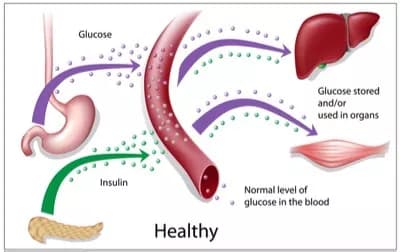
Production Of Key Diabetes Cells Can Be Improved
Beta cells release insulin in your blood, but when you suffer from Type 1 diabetes, you hardly have any of them left in your body. This is because the immune system attacks the beta cells.
The role of insulin is to reduce and regulate the blood sugar level when it is too high. People with diabetes do not have this function, and therefore need insulin injections in order to regulate their blood sugar levels.
Researchers are trying to produce beta cells artificially with the purpose of transplanting them to diabetic patients to regulate their blood sugar. A new research result from the University of Copenhagen and Novo Nordisk recently published in the scientific journal Stem Cell Reports provides a better understanding of how to improve the production of beta cells from human embryonic stem cells.
"At the moment, we can make stem cells develop into something that resembles proper beta cells. Our research shows that the current method produces cells that resemble alpha cells a little too much. However, the research has given us a better understanding of the steps stem cells go through when they develop into beta cells. In fact, we also show that the cells can develop along different paths, and still end up making the same type of beta cells," says Anne Grapin-Botton, professor at the Novo Nordisk Foundation Center for Stem Cell Biology, DanStem.
The researchers have based their work on human pluripotent stem cells, which are able to evolve into any cell type in the body. Using known methods, the scientists analysed about 600 different cells on their path to beta cell differentiation and individually examined the cells to find out how much they molecularly resemble the beta cells.
In doing so, the researchers acquired important new knowledge about the way in which the cells develop and which genes play a role in this development. Notably, it was important that the genes NXK6.1 and MNX1 were activated for the cells to become beta cells in the end.
"This study takes an in-depth look at the molecular mechanisms on the cell level. We are not looking at what the average cells do, as other scientists have previously done -- we are looking at all the individual cells. We are doing so in the hope that we can prevent cells from developing in the 'wrong direction'. This work sheds light on the paths which the cells take in their development and how we human beings develop in the womb," says Anne Grapin-Botton.
Alpha cells have the opposite function of beta cells. They must ensure that the body secretes the peptide hormone glucagon into the blood when the blood sugar level is too low. While the alpha cells cause the blood sugar level to rise, the beta cells ensure that it falls. And when the produced cells resemble the alpha cells too much, they are not optimal for treating diabetics.
"The cells definitely start the process of becoming either alpha or beta cells, but they don't complete it. Here, we need to carry on researching to learn even more about how we can optimise the last step in the development of beta cells," explains Anne Grapin-Botton.
Materials provided by University of Copenhagen The Faculty of Health and Medical Sciences. Note: Content may be edited for style and length.
Disclaimer: DoveMed is not responsible for the accuracy of the adapted version of news releases posted to DoveMed by contributing universities and institutions.
References:
Maja Borup Kjær Petersen, Ajuna Azad, Camilla Ingvorsen, Katja Hess, Mattias Hansson, Anne Grapin-Botton, Christian Honoré. (2017). Single-Cell Gene Expression Analysis of a Human ESC Model of Pancreatic Endocrine Development Reveals Different Paths to β-Cell Differentiation. Stem Cell Reports. DOI: 10.1016/j.stemcr.2017.08.009
Related Articles
Test Your Knowledge
Asked by users
Related Centers
Related Specialties
Related Physicians
Related Procedures
Related Resources
Join DoveHubs
and connect with fellow professionals

0 Comments
Please log in to post a comment.